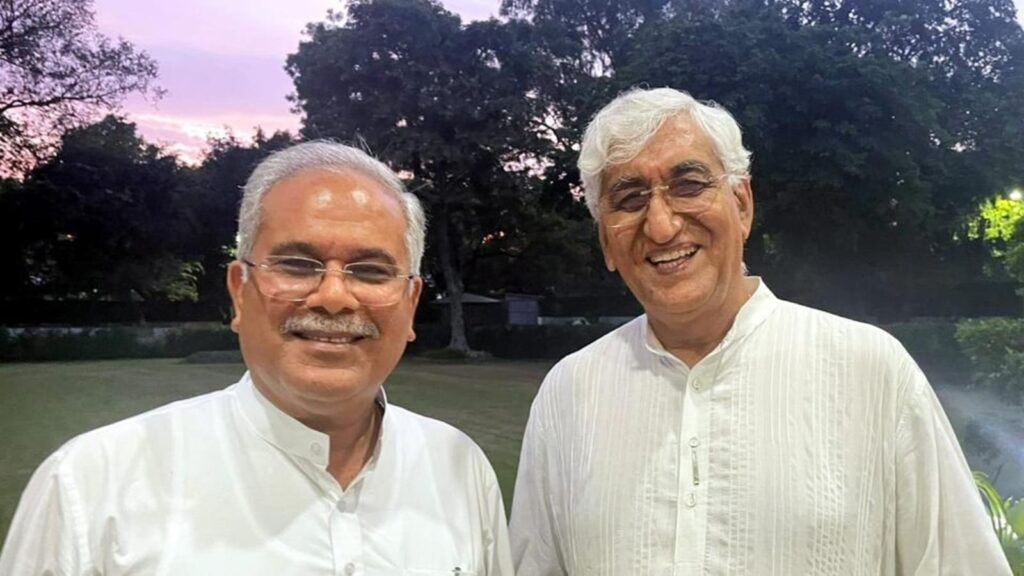Of the Congress’s three victories in the winter of 2018, Chhattisgarh was arguably the most spectacular. The party overcame the loss of its entire frontline leadership in the state – they were wiped out in 2013 in a devastating Maoist attack – to displace the Bharatiya Janata Party’s (BJP) 15-year-long rule. Yet, its win was marred by a fractious battle for chief ministership between Bhupesh Baghel and TS Singh Deo. Eventually, Mr Baghel won but tensions continued to simmer between the two regional stalwarts, eventually spilling into the open in September 2021, when scores of lawmakers travelled to Delhi as both sides attempted a show-of-strength. Even as those close to Mr Singh Deo insisted that the party leadership had promised him rotational chief ministership, rumours of a change in guard and friction swirled. But Mr Baghel held on, and Mr Singh Deo retreated to the background. This is the context in which the Congress’s surprise decision to anoint Mr Singh Deo as deputy chief minister just six months before assembly polls must be understood. For a party that is often accused of being too passive in resolving factional battles, the decision is proactive and indicates that the party is trying to take lessons from past debacles. After his elevation, Mr Singh Deo, who earlier held the health portfolio, has made the requisite conciliatory noises and affirmed the need to fight the upcoming polls unitedly. This must be music to the ears of the Congress president, Mallikarjun Kharge. Two aspects merit note.
One, the resource-rich state has played an important role for the Congress in the past five years, especially as it was, for some time, one of only two states the party controlled directly. As some internal assessments note, Chhattisgarh also represents the best chance for the Congress to register a rare victory against the BJP this year in a bipolar contest; the latter is riven by factionalism in its local unit. A victory in Chhattisgarh will boost the Congress’s stock in the fledgling Opposition bloc and give it greater bargaining heft ahead of the 2024 general elections. This cannot happen without projecting unity.
Two, this moment also poses a risk. The Congress must be careful to not repeat its misguided strategy that muddled its campaign in Punjab last year – after choosing Charanjit Singh Channi to replace Amarinder Singh as CM, the party vacillated until the last possible moment to name him the CM candidate, ensuring that the rank-and-file were divided and distracted. With deep factionalism in another poll-bound state, Rajasthan, the Congress needs to ensure that this truce, howsoever uneasy, holds.
Enjoy unlimited digital access with HT Premium
Subscribe Now to continue reading


